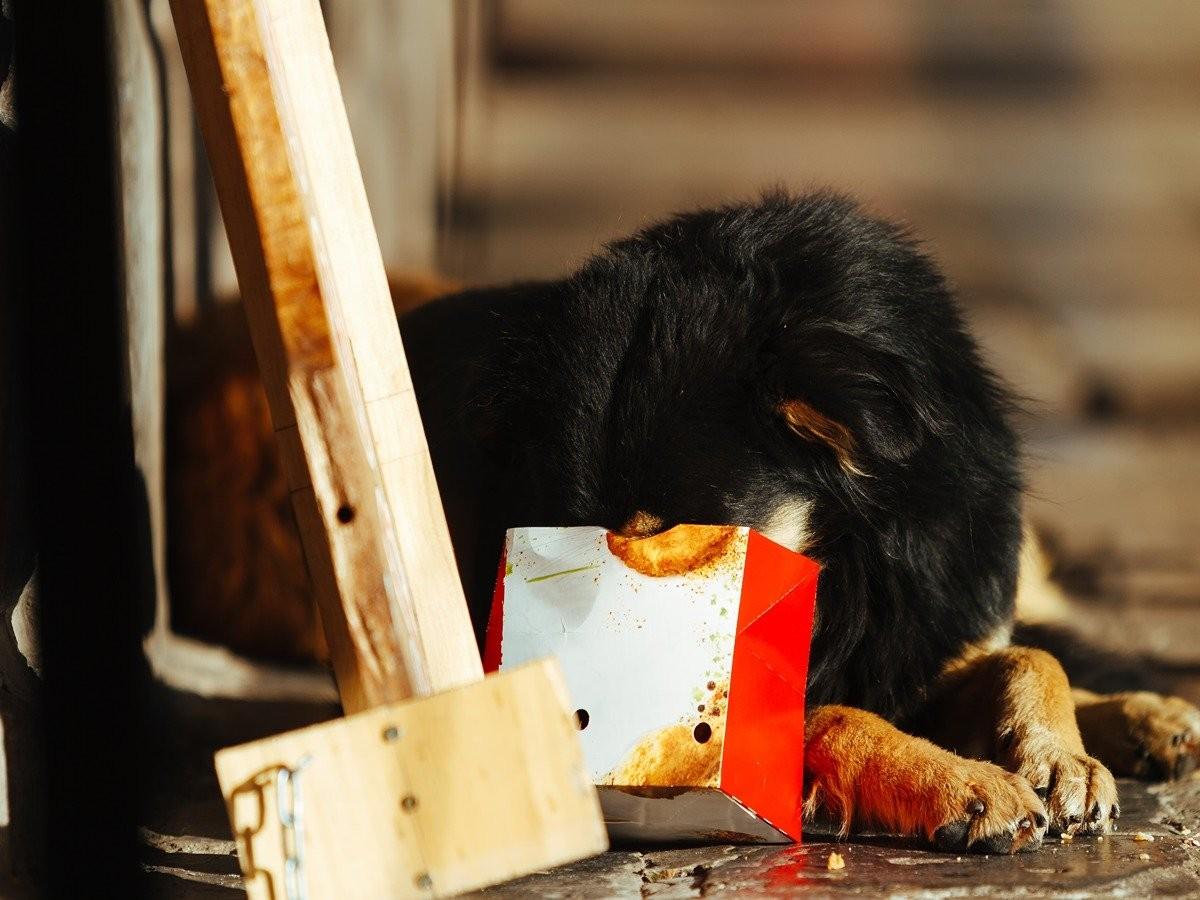We all love to spoil our canine companions, and sometimes that includes sharing a bit of our food. But when it comes to junk food, it's crucial to know what's safe and what's not. While the occasional bite of certain junk foods might not cause immediate harm, a diet filled with processed snacks can lead to serious health problems for your furry friend. Let's explore which junk foods are safe for dogs in moderation, and which ones should be avoided entirely.
Why is Junk Food Bad for Dogs?
Before we dive into specifics, it's important to understand why junk food is generally bad for dogs. These foods are often packed with:
Excess Fat: Can lead to obesity, pancreatitis (inflammation of the pancreas), and other digestive issues.
High Sodium: This can cause dehydration, increased thirst, and even salt poisoning, which can be fatal.
Sugar Overload: Contributes to weight gain, and dental problems, and can even increase the risk of diabetes in dogs.
Now, let's explore some common junk foods and whether they're safe for your dog:
Can Dogs Eat Hot Dogs?
While a small piece of a plain hot dog might not be immediately harmful, it's not the best choice for your dog. Hot dogs are high in fat and sodium, which, as we discussed, can have negative health consequences. They also often contain seasonings like garlic and onion powder, which are toxic to dogs.
Can Dogs Eat Ice Cream?
Ice cream is a definite no-no, especially chocolate ice cream! Chocolate is toxic to dogs and can cause serious health problems. Even vanilla ice cream can cause digestive upset due to its high sugar and lactose content. Opt for dog-friendly frozen treats like frozen yogurt or banana "nice cream" instead.
Can Dogs Eat Popcorn?
Plain, air-popped popcorn can be a safe occasional treat for dogs. However, avoid popcorn with butter, salt, or other toppings, as these can be harmful. Also, be sure to remove any unpopped kernels to prevent choking hazards.
Can Dogs Eat French Fries?
A few plain French fries might not harm your dog, but they offer little nutritional value and are high in fat and salt. Avoid giving your dog fries that are heavily salted or seasoned, and be mindful of potential allergens like garlic and onion powder.
Can Dogs Eat Pizza?
Pizza is a risky junk food for dogs. The high-fat content in cheese can cause pancreatitis, and many toppings, like onions and garlic, are toxic. Raw dough can also be dangerous as it can expand in the stomach and cause bloating.
Can Dogs Eat Pretzels?
Plain, unsalted pretzels can be given to dogs in moderation. However, avoid flavored pretzels or those with high salt content. Soft pretzels can also pose a choking hazard, so opt for hard pretzels broken into small pieces.
Can Dogs Eat Sushi?
While cooked fish can be a healthy part of a dog's diet, sushi often contains harmful ingredients, such as avocado, wasabi, and certain types of raw fish. If you give your dog sushi, make sure it's a simple roll with cooked fish and plain rice.
Can Dogs Eat Tortillas?
Plain, additive-free tortillas can be okay for dogs in small amounts. However, avoid tortillas with fillings, seasonings, or high-fat content.
Can Dogs Eat Pasta?
Plain, cooked pasta can be a safe occasional treat for dogs, especially if they are on a bland diet. Avoid pasta with sauces that contain garlic, onions, or excessive spices.
Can Dogs Eat Pepperoni?
Pepperoni is a big no-no for dogs. It's high in fat, salt, and spices, all of which can be harmful to dogs. Even a small amount can cause digestive upset, and excessive consumption can lead to more serious health issues.
Can Dogs Eat Quinoa?
Cooked quinoa can be a healthy addition to a dog's diet. It's a good source of protein and fiber and contains essential nutrients.
Can Dogs Eat Pancakes?
Plain pancakes without toppings can be an occasional treat for dogs. Avoid pancakes with chocolate, raisins, or nuts, as these can be toxic.
Can Dogs Eat Chicken Nuggets?
Homemade, unseasoned chicken nuggets can be a safe treat for dogs. However, avoid fast-food chicken nuggets; they often contain unhealthy additives, high sodium, and unhealthy fats.
Can Dogs Eat Dried Fruits?
Dried fruits should be avoided as they contain a compound that can be toxic to dogs.
Safe Snacks for Dogs
Instead of junk food, offer your dog healthy alternatives like:
Fruits: Apples (without seeds), blueberries, bananas (in moderation)
Vegetables: Carrots, broccoli, green beans
Key Takeaways
While it's tempting to share your favorite junk foods with your furry friend, it's important to prioritize their health and well-being. By understanding the risks associated with junk food and choosing safe alternatives, you can help your dog live a longer, healthier life. Always consult with your veterinarian if you have any questions about your dog's diet.

I’m Charlie: canine enthusiast with a knack for figuring out why my dog, Dallas, is more infatuated with tennis balls than me. My lifelong passion for dogs has created a dedication to help other pet parents better understands their furry family members!
Patterdale, Sassafras. "Can Dogs Eat Pepperoni? Can Dogs Have Pepperoni?" American Kennel Club, 08 May 2025, https://www.akc.org/expert-advice/nutrition/can-dogs-eat-pepperoni/.
Pet Expert Team. "Can Dogs Eat Pancakes?" Purina, 28 Jul. 2025, https://www.purina.com/articles/dog/feeding/can-dogs-eat/pancakes
Morgan, Ann-Marie. "Feeding Dogs Junk Food." The Dog Chef, n.d., https://www.thedogchef.co.uk/dog-food/feeding-dogs-junk-food/.
"Quinoa: The Dog-Friendly Ancient Grain." Just Food for Dogs, 30 Oct. 2025, https://www.justfoodfordogs.com/blog/can-dogs-have-quinoa.html
The information presented in this article is for educational and informational purposes only and does not constitute or substitute for the advice of your veterinarian.











